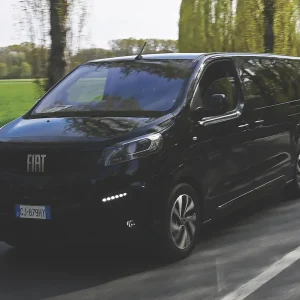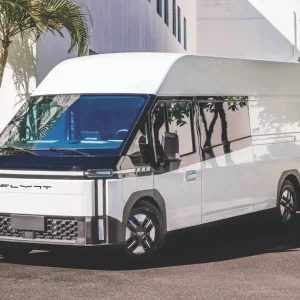The biggest noise in the small van segment this year has undoubtedly been made by the new baby in Ford’s line-up, the Transit Courier, which has completed the blue oval’s overhaul of its product range.
The Courier is targeted as a direct competitor to the little cube van sub-sector created by the Fiat/PSA partnership with the Citroen Nemo, Fiat Fiorino and Peugeot Bipper trio. This style of compact van is slowly but surely taking over from the traditional, albeit still big selling, car-derived vans such as the Ford Fiesta van (sales were up 20% in 2013 to 3792 units) and Vauxhall Corsavan. Peugeot has already withdrawn the commercial variant of the 207.
The Courier is available as a panel van and a Kombi, with two trim levels (Base and Trend) and with three engines: two diesels – 95hp 1.6 and 75hp 1.5 units – as well as Ford’s 1.0-litre Ecoboost petrol engine.
Ford claims the Courier will offer best-in-class fuel efficiency and load space while, when it comes to payload, its 660kg capacity matches the Bipper, Nemo and Fiorino’s limit. Another rival on Ford’s radar, Mercedes’ Citan Compact, has a payload of just 490kg.
Rivals may dispute Ford’s claim on loadspace because, while the Courier can accommodate 2.3m3 behind the bulkhead, the Fiorino, the Nemo and Bipper cite load volume of 2.5m3, while the Mercedes-Benz Citan Compact provides 2.4m3. But Ford draws attention to load-carrying features such as an optional mesh bulkhead and fold-down passenger seat that can increase load volume to 2.6m3 and enable the Courier to carry longer items of up to 2.59m.
Ford claims its most frugal engine, the 1.6 diesel, achieves 97g/km CO2 and 76.3mpg
on the combined cycle when equipped with auto stop- start and a 62mph speed limiter.
The most economical figure quoted by the competition, excluding the car-derived Vauxhall Corsavan, Fiat’s Punto Van and Ford’s own Fiesta Van, which have all cut emissions to below 90g/km and achieve more than 80mpg –is for the Peugeot Bipper 1.3 HDI 75 EGC with CO2 of 109g/km and fuel economy of 68.9mpg.
Courier prices start at £11,045 for the Base spec van, which is available with either the 1.0- litre ecoboost or the 75hp 1.5 diesel. This represents a £140 hike over the cheapest entry- level opposition van, the Bipper 1.3 HDI 75. All prices exclude VAT.
Manufacturers have tended to drag their feet when it comes to fitting safety equipment to smaller vans – often installing the latest technology on their larger models first – but it is good to see that virtually all new product now listed gets ESC as standard, largely as a result of it becoming mandatory under European law from November 2014.
When Citroen introduced ESC as standard on its Nemo range on 1 July, with a price increase of £50, it also added a Gear Efficiency Indicator to the semi-auto HDi 75 Stop and Start ETG 660 LX to bring it in line with manual versions.
The exception to the ESC as standard rule is Chinese manufacturer DFSK, which has recently added a range of 4WD and Big Cab LCVs to its line-up of Loadhopper minivans.
The 4WD derivatives are fitted with a switchable two and four-wheel drive system that also comes with a lever to select high or low range gearing to suit the conditions.
The 4WD range consists of the Loadhopper Single Cab Pick-up and Tipper and the Big Cab Pick-up, Tipper and Dropside. Prices start at £12,995 for the Single Cab Pick-up. The entry-level Big Cab model without 4WD, the 1.3-litre pick-up, is £9495.
As for ESC, a spokesman told What Van?:
“ESC is not a requirement for the approval type we currently use. However we are looking to have this fitted to our vehicles from June 2015 onwards.”
At the other end of the sophistication scale, Mini has withdrawn its short-lived Clubvan from the market after just two years.
Sales of what was the first LCV under the brand’s BMW ownership remained stubbornly low. According to the SMMT, registrations fell 27% in the first four months of this year compared with the same period last year (164 against 226).
Mini revealed a new Clubman passenger car at the Geneva Motor Show this year – the defunct Clubvan was based on its predecessor – but BMW has not confirmed whether this will form the base for another shot at the LCV market.
Perhaps a more likely CDV addition to the market next year would be a new Corsavan based on the forth generation Corsa car, which goes into production later this year.





